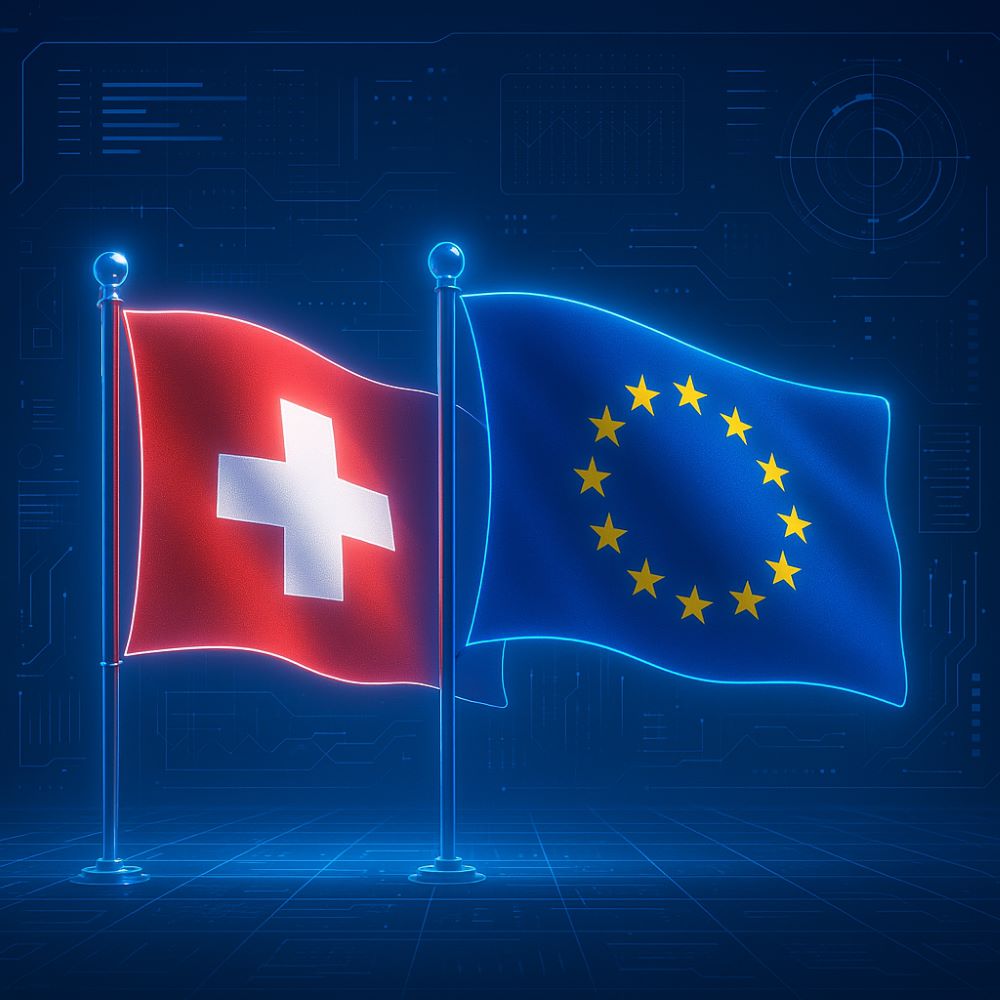
1. Why Digital Signatures Are Becoming Increasingly Important for Asset Managers
Today, clients expect 24/7 services – without media disruptions or paper overload. At the same time, regulatory pressure is growing: requirements such as FATCA, anti-money laundering (AML) regulations, and the new FinSA/FINIA standards demand clear customer identification, audit-proof documentation, and complete traceability.
Digital signatures can meet these requirements efficiently: they enable AML-compliant identification, link it directly to the signature (e.g., QES), and provide a tamper-proof audit trail. This way, compliance requirements and process optimization are addressed in a single step.
Paper-based processes, by contrast, are slow, error-prone, and neither resource- nor climate-friendly. With digital signatures, contracts, account openings, instructions, or powers of attorney can be processed quickly, securely, and entirely digitally – saving time, reducing costs, and increasing customer satisfaction.
2. Legal Certainty in Every Use Case
Especially in a regulated financial environment, legal certainty and evidential value are essential. Digital signatures differ by use case:
- Simple Electronic Signature (SES): For internal processes or documents with low liability risk.
- Advanced Electronic Signature (AES): For contracts, protocols, and account orders where authenticity and integrity must be verifiable, but no statutory written form is required.
- Qualified Electronic Signature (QES): The “gold standard,” legally equivalent to a handwritten signature; mandatory for contracts requiring statutory written form. It is also recommended whenever strong authentication is desired, even without a legal written form requirement (e.g., powers of attorney, advisory protocols, amendment agreements).
For internationally operating asset managers: Since Switzerland and the EU currently do not have mutual recognition, a platform that covers both regulatory frameworks (ZertES and eIDAS) is essential.
3. Digital Signatures as an Efficiency Booster
Digital signatures accelerate processes and reduce administrative workload by up to 70%. A typical real-world example: After a personal consultation, an advisor can send the client a secure link to digitally sign the advisory protocol and the asset management agreement – either during the meeting or immediately afterward. The client reviews and signs the documents conveniently on their device, while the entire process is documented in a tamper-proof manner. Automatic reminders ensure the process is completed without delays.
This enables business transactions to be finalized in minutes instead of days – without paper, postal delivery, or follow-up appointments. Seamless integration into CRM or document management systems ensures that all parties can see the current status at any time and that all documents are archived in an audit-proof manner.
4. Sustainability as a Competitive Advantage
More and more investors are focusing on sustainability – and expect the same from their financial service providers. Digital signatures make a visible contribution: they reduce paper consumption, transportation, and resource use, improve the ecological image, and help meet the industry’s growing ESG requirements.
5. signeer – The Swiss Signature Platform for Asset Managers
signeer is the digital signature solution specifically designed for the high demands of financial institutions and asset managers:
- Legally compliant, all signature types supported: QES, AES, and SES according to ZertES (CH) and eIDAS (EU) – including seamless online identification directly in the signature flow.
- AML-compliant identification: Fully integrated identification in accordance with FINMA guidelines – clients can identify themselves securely from anywhere, with immediate QES issuance.
- GDPR & Swiss DSG compliant: Hosting and operations in Switzerland, highest data protection standards, no data transfers to third countries.
- Seamless integration: APIs for CRM, core banking, or advisory systems, single sign-on (SSO), role-based access control.
- Maximum usability and acceptance: Confirmed by clients as particularly easy and intuitive.
- Sustainable: No paper, resource and CO₂ savings, measurable ESG contribution.
- Pay-per-use: Flexible, transparent pricing model for professional users.
signeer is the first platform to offer asset managers all the advantages of digitization without compromising on security or legal compliance. Many institutions in the financial sector are already using signeer – you can benefit too!

Integrated AML-Compliant Identification
One major advantage of signeer: The platform meets FINMA’s requirements for AML-compliant identification. Clients can identify themselves remotely – for example, via Auto-Ident or Video-Ident – and immediately receive their QES afterwards. This allows account openings or contract signings to be completed fully digitally and without media breaks.
Frequently asked questions
QTSP stands for Qualified Trust Service Provider.
This is a provider officially recognized under the EU eIDAS Regulation that is authorized to provide particularly trustworthy services—e.g., qualified electronic signatures (QES), seals, time stamps, or certificates.
Yes, when it comes to qualified services.
For qualified electronic signatures or other qualified trust services, eIDAS stipulates that these must be provided by a QTSP.
No, when it comes to non-qualified services.
For “normal” (non-qualified) signatures, identification processes, or authentications, non-qualified providers can also be used.
The collaboration ensures that all identity checks and qualified electronic signatures comply with the highest security and legal standards according to eIDAS. As a QTSP, Swisscom Trust Services contributes official qualification and regulatory expertise, while mesoneer provides the technical platform for secure, data protection-compliant operation.
All blog posts

An overview of eIDAS 2.0
The EU's eIDAS 2.0 regulation marks a fundamental change in how digital identities and trust services are handled in Europe. But what does this mean for Swiss companies? What challenges and opportunities does the introduction of the EU Digital Identity Wallet bring? And how can companies in Switzerland benefit from these changes? Find out why now is the time to act and what strategic steps you should take to remain competitive.

Qualified electronic signature (QES) – simply explained
In an increasingly digital world, legally valid electronic signatures are essential. The qualified electronic signature (QES) is the most secure and legally binding form of digital signature. Learn how QES works, when it is required, and how you can sign your documents securely and without media discontinuity using signeer from mesoneer.

Advanced electronic signature (AES) – simply explained
Legally valid and secure electronic signatures are essential in the digital business world. The advanced electronic signature (AES) offers significantly higher security than the simple electronic signature (SES), as it requires a verified identity of the signatory and uses technical protection mechanisms against manipulation. As a result, it offers greater legal certainty and probative value, for example for business contracts or sensitive documents. However, the FES is not sufficient if written form is required by law. In such cases, a qualified electronic signature (QES) is mandatory, as only it replaces the legally required written form.


